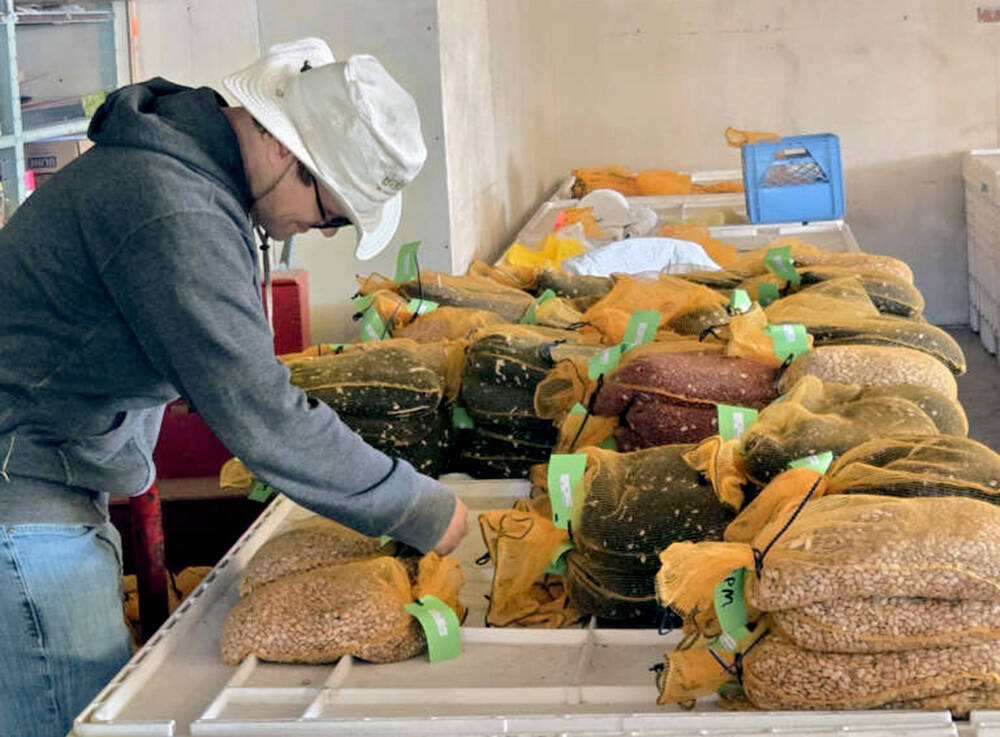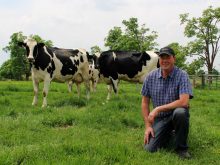Who do farmers turn to first in a crisis?
British farmers in the middle of the Foot and Mouth Disease crisis talked to service providers who understood their situation, studies showed.
Mental health advocates in Ontario are looking to train agriculture service providers here on how to identify and talk about mental illness on farms.
Why it matters: Studies of farmers and their state of mental health in Canada have found they have higher levels of stress and suicide than the general population.
Read Also

Bean research breeds community giving
University of Guelph dry bean researcher Dr. Mohsen Yoosefzadeh Najafabadi champions sustainability by donating surplus breeding program beans to support food security and community art initiatives.
There’s no plan to turn animal nutritionists, veterinarians and agronomists into psychologists and counsellors, said Dr. Andria Jones-Britton, veterinarian, epidemiologist, and associate professor in the Department of Population Medicine at the University of Guelph. But she believes that equipping them with the ability to identify producers who are struggling with mental health issues and be able to have effective and appropriate conversations can have an effect on mental health in rural Ontario.
“We have a problem with mental health literacy. Producers want to talk to people who understand farming,” said Jones-Britton at the recent Innovative Farmers Association of Ontario (IFAO) conference.
The training of service providers will be in person and online by someone with a background in mental health and agriculture.
Initial funding for Jones-Britton’s research came from the OMAFRA-University of Guelph. Second phase funding is coming from OMAFRA, the University of Guelph, the Ontario Federation of Agriculture and the Livestock Research Innovation Corporation.
“What we heard from producers and veterinarians is that during animal disease spread, we’re really quick to manage and depopulate the barn, but mental health was an afterthought,” said Briana Hagen, who is working on her doctorate on the topic of mental health and farmers under Jones-Britton at the University of Guelph, and joined Jones-Britton on stage at the IFAO meeting.

She has conducted in-depth interviews with 70 producers in the past seven months. An online survey of 1,100 producers across the country was also conducted. The survey was originally aimed at livestock producers, but was expanded when it was realized many more types of farmers were trying to take the survey, from across the country.
“Mental health literacy can be taught,” she said.
One in five Canadians experience depression and anxiety, said Jones-Britton. “Why aren’t we talking about it more openly? One of the reasons is we don’t know what to say. Mental health makes us feel uncomfortable.”
Here’s some of why farming is stressful, as identified by Hagen’s and Jones-Britton’s work:
- There are a wide range of occupational stresses, most of which are beyond farmers’ control, including climate, government regulations and markets.
- Family members are also farmers’ business partners and employees. “Farmers can’t just go home from work and complain about co-workers and about how awful they were that day, because they may be sitting there with you at the kitchen table and may not appreciate it,” said Hagen.
- No producer who lives on their farm ever leaves work at the end of the day and that can create stress in times of calm, let alone during a crisis.
- There are few opportunities to take a break while running a farm. Work and life are the same.
- Lack of support from family and the industry itself increases stress.
- As financial stress increases, so does overall personal stress.
- Pig farmers showed up as being more stressed, even when the common stressors were removed. “It was statistically significant,” said Hagen. “There’s something about pigs we need to talk about.”
The long-term goal of Jones-Britton’s and Hagen’s work is to create more resiliency among farmers.
Jones-Britton studied the mental health resiliency of farmers and expected it to be off the charts due to their long-term management of being in a stressful occupation.
What she found was that Canadian farmers scored 70 in a model that rated their resiliency. That compared to 80 for a large study on the general population in the United States.
There are several ways that farmers can work on their mental health resilience including:
- “Exercise is the gold standard,” said Jones-Britton.
- Mindfulness and mediation can help. “This is not airy fairy stuff. It is evidence-based,” said Jones-Britton.
- Self-talk is also an issue, says Hagen. How you talk about yourself and to yourself matters.
Jones-Britton was discouraged from taking on mental health on farms when she first proposed her research. There’s a history of stigma relating to mental health in the agriculture community. Her work is helping to change that.













